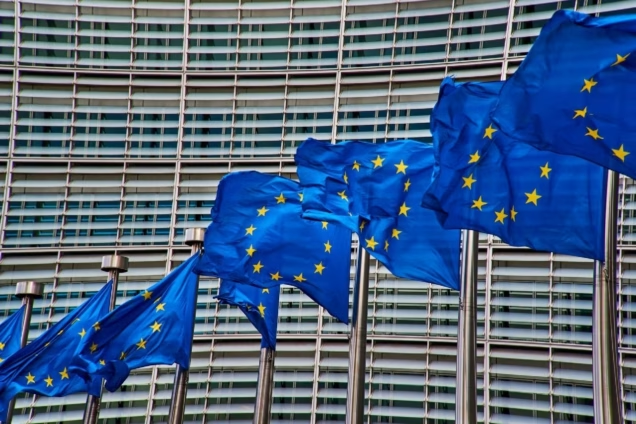European Union leaders have convened and agreed to leverage all available tools—such as trade, development aid, and visa policies—to expedite the return of migrants who have entered the bloc illegally.
They have tasked the European Commission with urgently drafting a new law to facilitate this process.
Immigration remains a contentious issue among the EU’s 27 member states. Despite a decrease in irregular migrant arrivals—down to a third of the 1 million seen during the 2015 crisis—leaky external borders continue to threaten the Schengen area’s passport-free travel, fueling the rise of far-right parties and impacting electoral outcomes across Europe.
In their meeting, the leaders emphasized the need for decisive action, stating, “The European Council calls for determined action at all levels to facilitate, increase, and speed up returns from the European Union using all relevant EU policy instruments, including diplomacy, development, trade, and visas.”
Last year, out of 484,000 non-EU citizens ordered to leave the EU, only 20% returned home. European Commission President Ursula von der Leyen acknowledged the need for improvement and indicated that a new law addressing this issue would be forthcoming.
Support for Poland Amid Asylum Suspension
The leaders also expressed solidarity with Poland in its decision to temporarily suspend asylum applications from migrants being pushed across its eastern border by Belarus and Russia.
While many NGOs view this move as a violation of the EU’s fundamental rights charter, von der Leyen argued it was a legal response to a “hybrid attack” from Minsk and Moscow.
“Russia and Belarus cannot be allowed to exploit our values, including the right to asylum, and undermine our democracies,” the leaders stated. They stressed that “exceptional situations require appropriate measures.” Finland had previously taken similar action in July, suspending asylum applications due to a migrant influx from Russia.
Discussion on “Return Hubs”
EU leaders also deliberated on establishing “return hubs” in non-EU countries where migrants whose asylum requests have been denied could await deportation, provided their home countries are deemed safe. Von der Leyen noted that discussions are ongoing regarding the organization of these hubs, including determining safe third countries and the duration migrants could be held there.
Italy’s right-wing government has already set up a “return hub” in Albania, while the Dutch government is considering sending rejected African asylum seekers to Uganda. However, not all leaders are fully supportive of this concept.
German Chancellor Olaf Scholz remarked that for a country as large as Germany, processing hubs outside the EU could only manage a fraction of asylum requests, suggesting that a law for expedited returns would be more effective. He and other leaders emphasized the EU’s need for migrants to counteract an aging population and the strain on pay-as-you-go pension systems.
Spanish Prime Minister Pedro Sanchez framed migration as a positive force, asserting that it is essential for Spain and other European economies to address declining birth rates and support welfare systems. “Do we want a prosperous and therefore open Europe, or do we want a poor and therefore closed Europe?” Sanchez asked.

